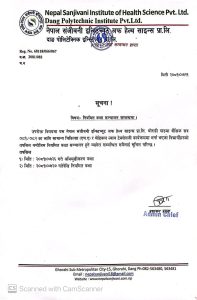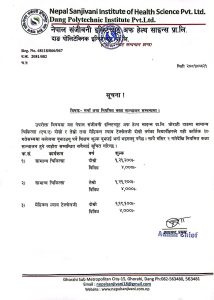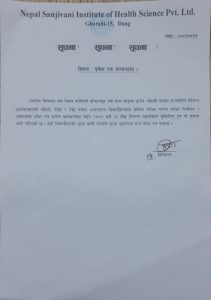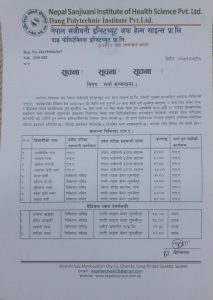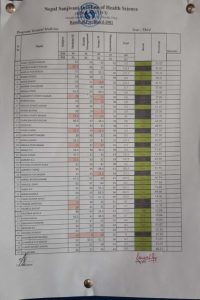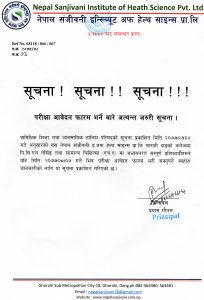Proficiency Certificate Level in Civil Engineering
Program Overview
The Pre-Diploma in Veterinary Science, offered by the Council for Technical Education and Vocational Training (CTEVT) in Nepal, is a foundational course designed to equip students with essential knowledge and skills in animal health and management. This program serves as a stepping stone for those interested in pursuing a full diploma or advanced studies in veterinary science. The curriculum covers fundamental topics such as animal anatomy, physiology, nutrition, and basic veterinary practices. With a strong emphasis on practical training, students gain hands-on experience in diagnosing and treating common animal diseases, preparing them for careers in veterinary clinics, farms, and research institutions.
Curriculum
The curriculum for the Pre-Diploma in Veterinary Science is structured to provide a comprehensive understanding of animal health care. Key subjects include:
- Animal Anatomy and Physiology: Understanding the structure and function of various animal systems.
- Veterinary Pharmacology: Study of drugs and their effects on animals.
- Animal Nutrition: Basics of animal dietary needs and feeding practices.
- Disease Management: Identification, treatment, and prevention of common animal diseases.
- Basic Surgical Techniques: Introduction to minor surgical procedures and emergency care.
Practical training is integral, with lab sessions, fieldwork, and hands-on practice in veterinary clinics ensuring that students apply theoretical knowledge in real-world scenarios.
Admission Requirements
To be eligible for the Pre-Diploma in Veterinary Science program, applicants must meet the following criteria:
- Educational Qualifications: Completion of secondary education (10+2 or equivalent) with a strong background in science subjects such as biology and chemistry.
- Minimum Marks: A minimum percentage in the qualifying examination, as specified by CTEVT.
- Entrance Examination: Candidates may be required to pass an entrance exam assessing their aptitude for veterinary studies.
- Age Limit: Generally, candidates should be between 17 to 25 years of age, though this may vary.
Applicants should also submit a completed application form, academic transcripts, and any additional documents required by CTEVT.
Career Opportunities
Graduates of the Pre-Diploma in Veterinary Science program have diverse career opportunities in the veterinary field. Potential career paths include:
- Veterinary Technician: Assisting veterinarians in diagnosing and treating animals.
- Animal Health Inspector: Ensuring animal welfare and food safety in various sectors.
- Farm Animal Care Specialist: Managing the health and nutrition of livestock.
- Pet Care Advisor: Providing guidance on pet care and wellness.
- Veterinary Supply Sales: Working in sales or marketing of veterinary products and equipment.
Further studies and specialization can lead to roles such as veterinary doctors, researchers, or instructors in veterinary science.
Importance in Nepal’s Health Care System
The Pre-Diploma in Veterinary Science program plays a crucial role in Nepal’s health care system by ensuring the health and well-being of the country’s animal population. Proper veterinary care is essential for:
- Food Safety: Ensuring that livestock and poultry are healthy, which directly impacts the safety and quality of meat and dairy products consumed by people.
- Disease Control: Preventing and managing zoonotic diseases that can be transmitted from animals to humans, thereby protecting public health.
- Economic Impact: Supporting the agricultural and livestock industries, which are vital to Nepal’s economy and rural livelihoods.
By training competent veterinary professionals, the program helps maintain animal health standards, supports sustainable agriculture, and contributes to the overall health and well-being of communities in Nepal.

